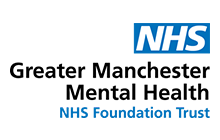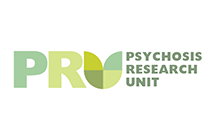

About the Cognitive Behavioural Therapies for Psychosis programme
The Cognitive Behavioural Therapies for Psychosis elearning programme has been developed to support training courses in equipping the NHS workforce to deliver competent, evidence-based psychological therapy to people with psychosis. CBT is a National Institute for Health and Care Excellence (NICE)-recommended treatment in clinical guidelines for the treatment of adults and children and young people with psychosis (see CG155 and CG178).
In order to improve access to effective, evidence-based services, NHS England introduced an access and waiting time standard. It is for all people experiencing first episode psychosis (including that associated with trauma or substance misuse), and requires that, from 1 April 2016, more than 50% of people experiencing first episode psychosis commence a NICE-recommended package of care within two weeks of referral. This care package should include the ability to offer access to CBT.
In order to help meet training needs for the EIP workforce, Health Education England funded several training courses in CBT for psychosis. This elearning package is intended to be a resource to support this face-to-face training, rather than being a stand-alone training package. It may also be helpful to students undertaking more general CBT qualifications (such as Diplomas) or for psychological therapists in training, such as Trainee Clinical Psychologists or Trainee Counselling Psychologists, or for other mental health practitioners such as Psychiatrists or Mental Health Nurses. It may also be of interest to service users and carers to learn more about CBT. It guides learners through the clinical protocol that has been evaluated in several randomised controlled trials conducted by Professor Tony Morrison and colleagues (see www.psychosisresearch.com for more information on the clinical trials and research team). There is a competency framework for CBT for psychosis, which outlines the required skills for competent practice.
The randomised controlled trials that have been conducted by our team, especially the larger multi-centre studies, have standardised the delivery of CBT for psychosis by requiring adherence to the protocol that is outlined in this resource. The NICE guidelines for treatment of psychosis recommend that CBT is based on a manualised protocol, which should increase the likelihood of replicating the outcomes observed in the trials.
More information
The elearning programme consists of six modules:
- Introduction – The approach to the delivery of CBT for psychosis, which has been evaluated in several clinical trials
- Phase 1 Assessment and Engagement – including case formulation and developing shared goals
- Phase 2a and 2b Verbal and Behavioural Change Strategies
- Phase 3 Longitudinal – the development of a longitudinal formation and longer-term work
- Phase 4 Consolidation – summarising the work done, and consolidating gains made and goals achieved
Each module includes a self-assessment and one or more video role plays filmed by staff from the Psychosis Research Unit at Greater Manchester Mental Health NHS Foundation Trust. These videos aim to illustrate the relevant processes, principles and strategies within each phase. The videos are supplemented with additional information including formulations developed within the role play sessions, as well as examples of behavioural experiment forms, problem lists, reviews of evidence for and against specific thoughts and therapy blueprints for staying well.
A certificate is available for each module, if all the videos in the module have been viewed and the self-assessment has been passed. These certificates are evidence of learning activity for Continuing Professional Development purposes, but they are not a qualification or evidence of competent practice. Free access is available for staff working in the NHS.
Meet the team

Tony Morrison
Professor of Clinical Psychology, University of Manchester and Director, Psychosis Research Unit, Greater Manchester Mental Health NHS Trust
Dr Samantha Bowe
Clinical Psychologist, Psychosis Research Unit, Greater Manchester Mental Health NHS Trust
Carl Bateson
Website designer, Psychosis Research Unit, Greater Manchester Mental Health NHS Trust
Steve Hewitt
Lead Learning Designer, HEE elearning for healthcare
Jonathan Guy
Project Manager, HEE elearning for healthcare
Alison Brabban
National Clinical Advisor for Severe Mental Illness, NHS England
Henrietta Mbeah-Bankas
Health Education England
Psychosis Research Unit team
- Savas Akgonul
- Mike Best
- Meesha Bright
- Vicky Brooks
- Rory Byrne
- Alex Clark
- Rachel Crawshaw
- Paul French
- Natasha Holden
- Paul Hutton
- Emmeline Joyce
- Amanda Larkin
- Kate Lawrence
- Sarah Mack
- Liz Murphy
- Jasper Palmier-Claus
- Sophie Parker
- Melissa Pyle
- Glynis Queenan
- Ann Steele
- Sarah Tully
- Liz Turner
How to access
In order to access the Cognitive Behavioural Therapies for Psychosis programme, you will need an elfh account. If you do not have one, then you can register by selecting the Register button below.
To view the Cognitive Behavioural Therapies for Psychosis programme, select the View button below. If you already have an account with elfh, you will also be able to login and enrol on the programme from the View button.
Not an NHS organisation?
If you are not an NHS health or care organisation and therefore do not qualify for free access elfh Hub, you may be able to access the service by creating an OpenAthens account.
To check whether or not you qualify for free access via OpenAthens, you can view the eligibility criteria and register on the ‘OpenAthens’ portal.
Registering large numbers of users
If you are a HR, IT or Practice Manager and would like to register and enrol large numbers of staff within your organisation for access onto the Cognitive Behavioural Therapies for Psychosis programme, please contact elfh directly.
Organisations wishing to use their own LMS
For HR departments wanting to know more about gaining access to courses using an existing Learning Management System please contact elfh directly to express interest.
More information
Please select the following link for more information on how to use the elfh Hub.




